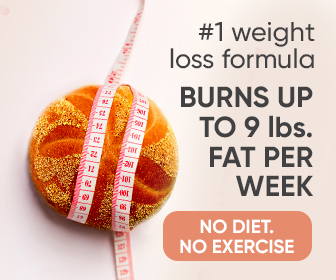In this exploration, we delve into the topic of Is it safe to lose 10 pounds in 2 weeks ?
This objective implies shedding a significant amount of weight in a relatively short timeframe, which raises questions about its safety and feasibility.
Rapid weight loss of this magnitude is often sought after by individuals aiming to quickly achieve their desired physique or meet specific targets, such as fitting into a particular outfit or preparing for an event.
However, the effectiveness and potential risks of such an endeavor warrant closer examination.
Weight loss has long been associated with numerous health benefits, including a reduced risk of chronic conditions such as type 2 diabetes, cardiovascular diseases, and joint problems.
Maintaining a healthy weight is essential for overall well-being, as it can enhance energy levels, boost self-esteem, and improve daily functioning.
Moreover, weight loss often plays a crucial role in the management of obesity-related health concerns, contributing to an improved quality of life for many individuals.
Weight loss goals vary widely among individuals, often driven by personal motivations and societal influences.
Common weight loss goals can range from shedding a few pounds to more substantial transformations.
Timeframes for achieving these goals also differ; some people may aim for gradual, sustained weight loss over several months, while others seek more immediate results, such as the aforementioned 10-pound loss within two weeks.
These diverse approaches to weight loss highlight the need to assess the safety and suitability of various strategies, particularly those involving rapid and aggressive measures.
I. Factors Influencing Safe Weight Loss
A. Individual’s Starting Weight and Body Composition
The journey of: Is it safe to lose 10 pounds in 2 weeks is influenced by the starting point of an individual’s weight loss journey significantly impacts the rate at which weight can be safely lost.
People with a higher initial weight may experience more rapid initial weight loss, but this rate tends to slow down as they approach a healthier weight range.
Body composition also plays a role, as losing fat while preserving lean muscle mass is essential for long-term success and metabolic health.
B. Metabolism and Basal Metabolic Rate (BMR)
Metabolism is the body’s mechanism for converting food into energy, while Basal Metabolic Rate (BMR) quantifies the calories necessary to sustain fundamental functions during rest.
Metabolic rate varies among individuals and is influenced by factors such as age, genetics, and body composition.
A higher BMR allows for a slightly faster rate of weight loss, while a lower BMR may necessitate more gradual changes to prevent metabolic slowdown.
C. Age, Gender, and Genetic Factors
Age and gender contribute to differences in how individuals respond to weight loss efforts.
Younger individuals might experience faster weight loss due to a more favorable hormonal balance and higher activity levels.
Genetic factors can influence how the body stores and burns fat, impacting the rate and ease of weight loss.
D. Nutritional Habits and Dietary Preferences
The types of foods consumed and the overall nutritional quality of one’s diet are crucial for safe and effective weight loss.
A balanced diet rich in whole foods, lean proteins, vegetables, and fruits provides essential nutrients while supporting weight loss.
Dietary preferences, restrictions, and cultural considerations also influence the feasibility of various diet plans.
E. Physical Activity Level and Exercise Routine
Regular physical activity contributes to weight loss by increasing energy expenditure and improving overall fitness.
The level of physical activity, along with the intensity and frequency of exercise, affects the rate at which calories are burned.
Incorporating exercise can enhance weight loss results, but extreme or overly intense routines can lead to burnout and injury.
F. Overall Health and Medical Conditions
Existing health conditions can impact the safety and effectiveness of weight loss efforts. Some medical conditions might require modified approaches to diet and exercise.
Consulting a healthcare professional is essential before embarking on a weight loss journey, particularly for those with chronic illnesses or special health considerations.
II. Healthy Rate of Weight Loss
A. Explanation of a Safe and Sustainable Weight Loss Rate
Understanding whether: Is it safe to lose 10 pounds in 2 weeks involves grasping the concept of a safe and sustainable rate of weight loss is paramount to avoid potential health risks and setbacks.
The rate at which weight is lost affects not only the physical body but also psychological well-being and the body’s ability to adapt to changes.
A balanced approach allows the body to adjust gradually, reducing the chances of negative consequences.
B. General Guideline: Aim for 0.5 to 2 Pounds per Week
The general consensus among health professionals is that a weight loss rate of 0.5 to 2 pounds per week is considered safe and sustainable for most individuals.
This gradual pace allows for the preservation of lean muscle mass, better adherence to dietary and lifestyle changes, and a reduced risk of negative health outcomes.
III. Rapid Weight Loss: Potential Concerns
A. Impact on Metabolism
When assessing is it safe to lose 10 pounds in 2 weeks it’s crucial to examine the potential impact of such rapid weight loss on the body’s metabolism.
Drastically reducing calorie intake can signal to the body that it’s in a state of energy deprivation, leading to a slowdown in metabolic rate.
This metabolic adaptation is the body’s way of conserving energy and can make it harder to sustain weight loss in the long term.
A compromised metabolism can also contribute to feelings of fatigue and sluggishness.
B. Risk of Muscle Mass Loss
During rapid weight loss, the body may break down muscle tissue for energy, especially if the weight loss is achieved through extreme caloric restriction.
Losing muscle mass can decrease overall strength, impair physical performance, and lower the basal metabolic rate.
Preserving lean muscle mass is crucial for maintaining a healthy metabolism and achieving sustainable weight loss.
C. Potential for Nutrient Imbalances
Rapid weight loss diets often focus on severe restrictions of certain food groups, which can lead to nutrient imbalances and deficiencies.
Such diets may lack essential vitamins, minerals, and macronutrients necessary for optimal bodily function.
Nutrient deficiencies can impact the immune system, bone health, and various physiological processes.
D. Psychological and Emotional Implications
Rapid weight loss approaches can take a toll on a person’s psychological and emotional well-being. Extreme dietary restrictions can lead to feelings of deprivation and frustration, fostering an unhealthy relationship with food.
The pressure to achieve rapid results might lead to increased stress and anxiety, negatively affecting mental health.
E. Potential for Rebound Weight Gain
One of the most significant concerns with rapid weight loss is the potential for rebound weight gain.
Extreme dieting methods are often difficult to sustain over the long term, and once normal eating habits are resumed, the body may regain the lost weight, sometimes even surpassing the initial weight.
This cycle of weight loss and regain, known as yo-yo dieting, can be detrimental to both physical and mental well-being.
F. Loss of Sustainable Habits
Rapid weight loss strategies often prioritize short-term results over the development of healthy, sustainable habits.
These habits, such as balanced eating and regular exercise, are crucial for maintaining weight loss and overall health.
Focusing solely on quick fixes can hinder the establishment of lifelong behaviors that promote well-being.
IV. Feasibility of Losing 10 Pounds in 2 Weeks
A. Calculations: Calories and Energy Expenditure
Evaluating the feasibility of is it safe to lose 10 pounds in 2 weeks involves delving into the calculations of calorie deficit and energy expenditure required to achieve this goal within the specified timeframe.
Typically, about 3,500 calories equate to an average of one pound of body weight. To lose 10 pounds, a person would need to create a total calorie deficit of about 35,000 calories over the two-week period.
This equates to a daily calorie deficit of 2,500 calories, which is a significant challenge and often involves drastic changes in dietary and activity habits.
B. Realistic Calorie Deficit for Rapid Weight Loss
Creating such a large calorie deficit for rapid weight loss can be extremely demanding and potentially unsustainable.
Extreme calorie restriction can lead to nutrient deficiencies, muscle loss, and other health complications.
Moreover, maintaining such a deficit over an extended period might negatively affect metabolism, making it harder to maintain the weight loss and increasing the risk of rebound weight gain.
C. Consideration of Extreme Diets and Their Effects
Some individuals turn to extreme diets, such as very low-calorie diets or fad diets, in an attempt to achieve rapid weight loss.
These diets often involve severe restrictions on food groups or extreme limitations on calorie intake.
While they might yield rapid initial results, they come with significant risks, including nutrient deficiencies, muscle loss, and potential negative impacts on physical and mental well-being.
Additionally, extreme diets can foster an unsustainable relationship with food and perpetuate a cycle of weight loss and regain.
The drastic nature of these diets can lead to feelings of deprivation and make it challenging to adhere to the diet in the long run.
As a result, individuals may experience yo-yo dieting and struggle to maintain a healthy weight in the future.
V. Healthier Approaches to Weight Loss
A. Balanced and Nutrient-Rich Diet Choices
When considering is it safe to lose 10 pounds in 2 weeks opting for a balanced and nutrient-rich diet is a key foundation for healthy weight loss.
Direct your attention towards consuming a diverse range of whole foods, encompassing lean proteins, whole grains, fruits, vegetables, and nourishing fats.
These foods provide essential nutrients while helping to manage hunger and support overall well-being.
B. Incorporating Regular Physical Activity
Participating in physical activity significantly contributes to weight loss and overall health.
Engaging in regular exercise helps increase energy expenditure, improve cardiovascular health, and build lean muscle mass.
Aim for a mix of aerobic exercises, strength training, and flexibility routines to enhance weight loss and promote long-term fitness.
C. Importance of Hydration and Sleep
Staying hydrated is essential for proper bodily functions, including metabolism. Drinking adequate water can also help manage appetite and prevent overeating.
Equally important is getting enough quality sleep, as sleep deprivation can disrupt hormones that regulate hunger and satiety. Prioritize 7-9 hours of restful sleep per night to support weight loss efforts.
D. Seeking Professional Guidance: Nutritionists, Dietitians, and Doctors
Seeking guidance from healthcare professionals can significantly enhance the success and safety of your weight loss journey.
Nutritionists and registered dietitians can help create personalized meal plans that provide the necessary nutrients while supporting weight loss goals.
Consulting a doctor before making significant changes to your diet and exercise routine is crucial, especially if you have pre-existing health conditions.
These professionals can provide evidence-based recommendations tailored to your unique needs, ensuring that your weight loss plan is safe, effective, and sustainable.
They can also assist you in tracking your progress and making any required modifications as you proceed.
VI. Individual Variability and Personalization
A. Acknowledging That One Size Doesn’t Fit All
Every individual is unique, with distinct physiological, genetic, and lifestyle factors that influence how they respond to weight loss efforts.
It’s important to recognize that what works for one person might not work for another. Weight loss approaches should be tailored to fit individual needs, preferences, and circumstances.
B. Consulting with a Healthcare Provider Before Starting Any Weight Loss Plan
Before embarking on a weight loss journey, consulting with a healthcare provider is strongly recommended.
A healthcare professional can assess your overall health, identify any potential risks, and offer personalized recommendations based on your medical history and current health status.
This is especially crucial for individuals with underlying medical conditions or those taking medications that might interact with dietary changes or increased physical activity.
C. Emphasis on Setting Realistic and Sustainable Goals
Setting realistic and sustainable weight loss goals is fundamental to long-term success.
Rapid weight loss goals, such as losing 10 pounds in 2 weeks, may not align with the body’s natural processes and can lead to negative health outcomes.
Instead, focus on setting achievable goals that prioritize gradual progress, such as aiming for 0.5 to 2 pounds of weight loss per week.
Sustainability is equally vital. Creating habits that can be maintained over time ensures that the progress you make is not lost once you return to normal eating and exercise routines.
Extreme changes that are difficult to sustain often lead to yo-yo dieting and hinder the establishment of lasting healthy habits
VII. Conclusion
A. Reiteration of the Main Points
Throughout this exploration of is it safe to lose 10 pounds in 2 weeks we’ve delved into various factors, and we’ve highlighted the importance of approaching weight loss with a comprehensive understanding of its potential impacts on both the body and mind.
From discussing the feasibility of rapid weight loss to exploring healthier and more sustainable alternatives, key insights have been brought to light.
B. Emphasis on Prioritizing Health and Well-being Over Rapid Results
It’s crucial to reiterate that prioritizing health and well-being should always take precedence over rapid weight loss.
While the allure of quick results may be strong, the potential risks associated with extreme measures far outweigh any immediate benefits.
A focus on achieving a healthier body composition, improving fitness levels, and nurturing a positive relationship with food is paramount.
C. Encouragement to Make Informed and Balanced Choices for Weight Loss
As you consider your own weight loss journey, remember that you hold the power to make informed and balanced choices.
Seek guidance from healthcare professionals, such as doctors and registered dietitians, who can offer personalized recommendations tailored to your needs.
Aim for a gradual and sustainable approach that supports your overall health and well-being.
It’s important to acknowledge that progress may not always be linear, and setbacks are a natural part of the process.
Rather than fixating solely on the numbers on a scale, celebrate the non-scale victories – increased energy, improved mood, enhanced fitness levels, and better overall health.
In your pursuit of weight loss, remember that patience, self-compassion, and a commitment to sustainable change are your greatest allies.
By focusing on building positive habits and fostering a holistic view of well-being, you’ll not only achieve your weight loss goals but also cultivate a healthier and happier life.













No Comments